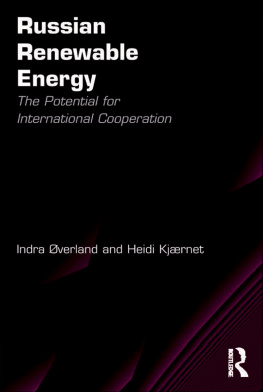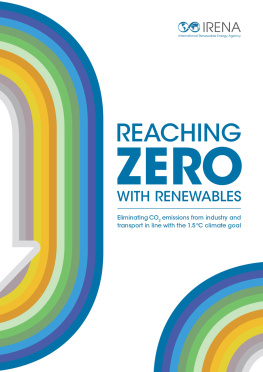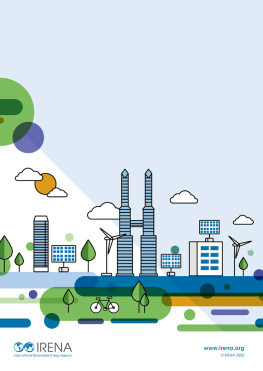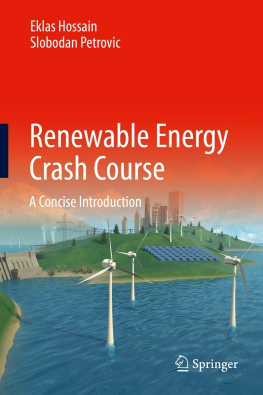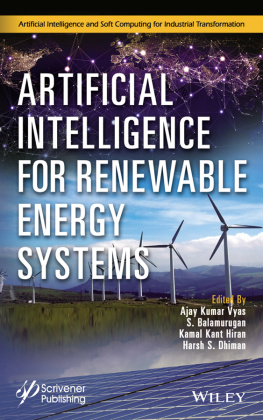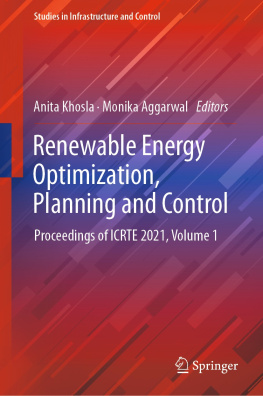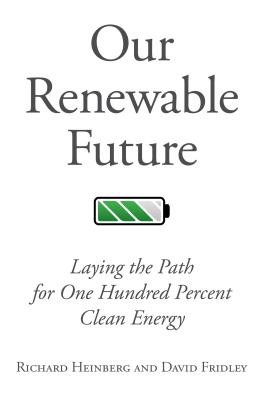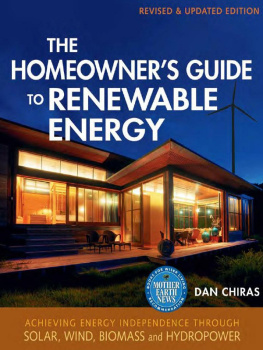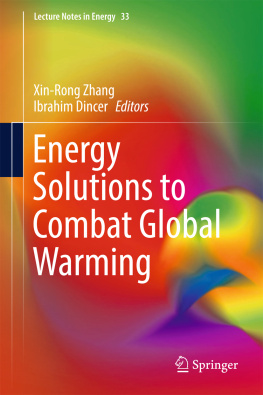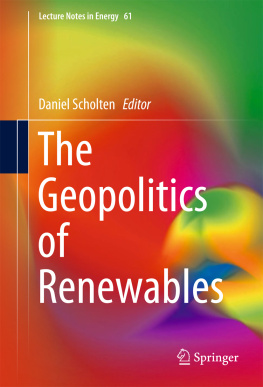RUSSIAN RENEWABLE ENERGY
Russian Renewable Energy
The Potential for International Cooperation
INDRA VERLAND and HEIDI KJRNET
Norwegian Institute of International Affairs (NUPI)
and University of Troms, Norway
First published 2009 by Ashgate Publishing
Published 2016 by Routledge
2 Park Square, Milton Park, Abingdon, Oxon OX14 4RN
711 Third Avenue, New York, NY 10017, USA
Routledge is an imprint of the Taylor & Francis Group, an informa business
Copyright Indra verland and Heidi Kjrnet 2009
Indra verland and Heidi Kjrnet have asserted their right under the Copyright, Designs and Patents Act, 1988, to be identified as the authors of this work.
All rights reserved. No part of this book may be reprinted or reproduced or utilised in any form or by any electronic, mechanical, or other means, now known or hereafter invented, including photocopying and recording, or in any information storage or retrieval system, without permission in writing from the publishers.
Notice:
Product or corporate names may be trademarks or registered trademarks, and are used only for identification and explanation without intent to infringe.
British Library Cataloguing in Publication Data
verland, Indra.
Russian renewable energy : the potential for international cooperation.
1. Renewable energy sources--Russia (Federation) 2. Power resources--Research--Russia (Federation) 3. Power resources--Research--International cooperation.
I. Title II. Kjrnet, Heidi.
333.7'9415'0947-dc22
Library of Congress Cataloging-in-Publication Data
verland, Indra
Russian renewable energy : the potential for international cooperation / by Indra verland and Heidi Kjrnet.
p. cm.
Includes index.
ISBN 978-0-7546-7972-1 (hardback) -- ISBN 978-1-3156-0733-7 (ebook)
1. Power resources--Government policy--Russia (Federation). 2. Renewable energy sources--Russia (Federation) 3. Russia (Federation)--Foreign economic relations. I. Kjrnet, Heidi II. Title.
HD9502.A4O82 2009
333.7940947--dc22
2009031153
ISBN 9780754679721 (hbk)
ISBN 9781315607337 (ebk)
ISBN 9781317060338 (ebk-ePUB)
Contents
List of Figures
List of Tables
Notes on Contributors
Indra verland is the Head of the Energy Programme at the Norwegian Institute of International Affairs (NUPI) and Associate Professor at the University of Tromso. His main research interest is post-Soviet energy issues. He holds a PhD from the University of Cambridge and is the co-editor of numerous scholarly articles, as well as a book to be published by Routledge in September 2009 (Caspian Energy Politics: Azerbaijan, Kazakhstan and Turkmenistan).
Heidi Kjrnet is a Research Fellow under the Energy Programme at NUPI. Her current research focuses on energy policy and governmentbusiness relations in Azerbaijan, Kazakhstan and Russia. She has served as project manager for the environmental organization Nature and Youth in North-Western Russia, and is the co-editor of Caspian Energy Politics: Azerbaijan, Kazakhstan and Turkmenistan, to be published by Routledge in September 2009.
Acknowledgments
This book is based on a comprehensive study of renewable energy in Russia carried out between 1 November 2007 and 15 June 2009. The study was sponsored mainly by the organization Nordic Energy Research, but also drew on the resources of the RussCasp project. Nordic Energy Research, an institution under the umbrella of the Nordic Council of Ministers, supports joint energy research between the Nordic countries. RussCasp is financed by the Petrosam Programme of the Research Council of Norway. RussCasp is carried out by the Fridtjof Nansen Institute, the Norwegian Institute for International Affairs and Econ Pyry as consortium partners, and also includes other institutions and researchers as participants. We would also like to thank Grant Dansie who co-authored .
We are extremely grateful to Marc Lanteigne, Diana Golikova, Nazar Mamedov, Farkhod Aminjonov and Susan Hivik for their help with language editing, formatting, layout and helping us to sort out all the stylistic details of the book.
Chapter 1
Introduction
Renewable energy has emerged as a primary tool in the global strategic race towards a low-carbon economy. Countries that are successful in this race will gain economic strength, while making a contribution to climate policy that may raise their international political standing and reduce their dependency on imported energy. The ability to forge fruitful partnerships across borders will be a decisive factor. In this book, we examine whether and in what ways Russia might be suitable for such partnership. We seek to provide an overview of the Russian renewable energy landscape that may:
help foreign governments and research funds to formulate policies to promote international cooperation with Russia on renewable energy,
help international researchers to identify which Russian research institutions, sectors and locations may be worth targeting for collaborative ventures,
provide students, researchers and practitioners with insights into the situation in Russia in the field of renewable energy as well as its future potential,
hold up a mirror, making an outside view available to Russian researchers and thereby help them develop their own renewable energy sector,
shed light on Russias strengths in renewable energy, as well as the obstacles to renewable energy research and investment in the country.
The book highlights the vast potential that Russia has in renewable energy, as well as obstacles to renewable energy research and investment in the country. Relatively little information is available on Russia and renewable energy, so this volume should be of interest to readers generally involved in global renewable energy issues, as well as those more specifically interested in Russian politics and economics, or in the Eurasian energy balance.
In addition to providing a detailed picture of the actors and framework conditions in Russias renewable energy sector, we examine cooperation between the European Union (EU) and the Russian Federation, and use the cooperation between the Nordic countries and Russia as an informative case study. The EU is Russias largest trade partner, and within the EU the Nordic countries have spearheaded relations with Russia. There is much to learn from the experience of the Nordic countries, with their proximity to Russia, the intensity of their broader economic cooperation with Russia and their advanced technologies for renewable energy.
While considerable academic work has been done on Russias petroleum sector, renewable energy in Russia has remained less studied. Nonetheless renewable energy in Russia is a timely topic, as we explain in the following section. In the final part of this introductory chapter we go on to outline the topics covered in this book and its structure.
Why renewable energy in Russia?
Why pay attention to renewable energy in Russia a country so richly endowed with fossil fuels? After all, it holds the worlds largest reserves of natural gas, the second largest coal reserves, eighth largest oil reserves, and is the worlds largest exporter of natural gas, the second largest oil exporter, one of the main nuclear powers and the worlds largest energy exporter. Russias position as an energy superpower is based on its natural abundance of fossil and nuclear fuels not wishy-washy renewable energy.


